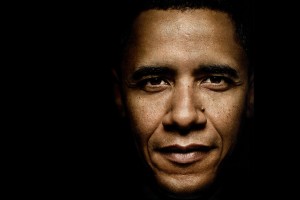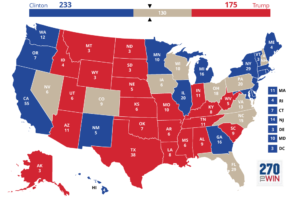As 2012 continues, so does the grind of the election year, and certainly no one is more excited for November 6th than the candidates themselves. I can’t imagine the drain and the grueling stress this brings for the candidates). This atmosphere, combined with the patriotism associated with Memorial Day this weekend, had me pondering the sort of questions that I believe many of my generation begin to think about: what does the 21st century manifestation of obedience to government, but primarily finding one’s citizenship in heaven, look like? Especially as “hot” cultural issues continue to smoke on the stove top and grab the obsessive attention of national media, what is the wisest, and most biblical, “political identity” that the Christian is to have?
I notice a tendency from many of my peers, and even within my own soul, to share a particular state of despondency when we consider the shape and the effectiveness of the church and politics over the last 50, if not specifically the last 25, years. Admitting that a large part of the sentiment spawns from the radical individualism of our culture, it seems that more and more young people within the church are choosing to publicly dis-identify themselves with the Religious Right, with any particular political party, and instead to define themselves on an issue-by-issue basis… for anyone who asks.
Also posted on Between Two Worlds, here is an interesting open letter from David French– a Christian Harvard Law graduate who self admits that he is the “face” of Christian partisanship. His candid letter confesses that he wasn’t always this way: no, he himself tasted the same bitterness that came from critiquing the strategies and the stereotypes of Christian involvement in partisan politics.
Yet now, he has a new perspective- now, he feels that, although it’s not always pretty, the Christian cannot afford to step away from the political limelight, cannot afford to step away from engagement of the political milleu, and… cannot afford to dis-identify with the typically conservative bi-partisan wing of American politics (I am not sure if this last one is putting words in his mouth based upon my interaction with this one article, but although he doesn’t say it, it seems to be his obvious conclusion).
After an initial pondering, here are my thoughts:
1) French: The post-partisan Christian must remember that being a Christian is never about “being cool,” and liked, but about standing steadfastly on biblical truth:
Response: Agreed. Biblically, the believer will experience rejection from this world for standing upon the Gospel. And by means of collateral persecution, this includes defending biblical truth and ethics. His message to young people that it is not this generation’s glorious, worldchanging mission to make Christianity cool, and to integrate it in a way where the liberal and conservative alike drop their jaws at the powerful political mediation skills of the cross. The only mediation is what Jesus accomplishes in reconciling His church to His Holy Father. Jesus promises to divine even fathers and sons, mothers and daughters. Certainly, the church isn’t mean to universally reconcile Republicans and Democrats IN the public arena (of course, within the church, God’s makes all sorts of former enemies family. But that isn’t the purview of this discussion). The Proverbs warning (Proverbs 30:9) and Jesus’ words in Matt 10:33 are chilling- the road of spineless Christianity, or one that is affraid of any ridicule for the sake of the Gospel, should heed these.
2) Christians need to understand that they are not in control of their public image
Response: Agreed. No matter how short and “un-misinterpret-able” a phrase you utter, some media member will sound-bite crunch it in a way that they will use to malign you. However, I don’t see how this supports his view- if even the president can’t control his image, then how does allocating funds from world relief/ missions orgainzations to Christian think takes and worldview organizations help us “take control” of the Christians image, if it this feat is impossibe?
3) There is a vital ministry need to provide a biblical voice, both to address the unsaved world, and to provide training for the church (I derived this from his “Step 3”):
Response: Agreed. Personally, I think about how my own growth and development has been transformed as a result of the resources, teaching, and efforts to cultivate a bilbical worldview that many leaders of the church have provided to me.
4) Christians need to be Bi-Partisan. Oh, and that means they need to join the religious right.
Response: Not sold. Although he doesn’t (at least in this letter), say this explicitly, I don’t see what else his application could be. Those who have philosophical chats with me know that I have yet to be persuaded on “the ends justify the measn,” or “we must side with the lesser of two evils” arguements. I don’t see how joining the relgious right= not having a voice, which French says is the natural consequnce of a non-partisan decission. Perhaps he is assuming that post-particianship means to not speak up, that this attitude comes with the territory. If that’s the case, that might be a charicature of the attitudes of that perspective. Additionally, I know that our “Two Kingdom-Two-Cities” contributors will definately have a perspective that has a whole lot of voice, but a biblical conviction to keep the money and activity of the church (although, I’m sure not Christian individuals, if this is their career calling) OUT of partisan politics. On this matter, my conviciton is the same.





Leave a Reply
Your email is safe with us.